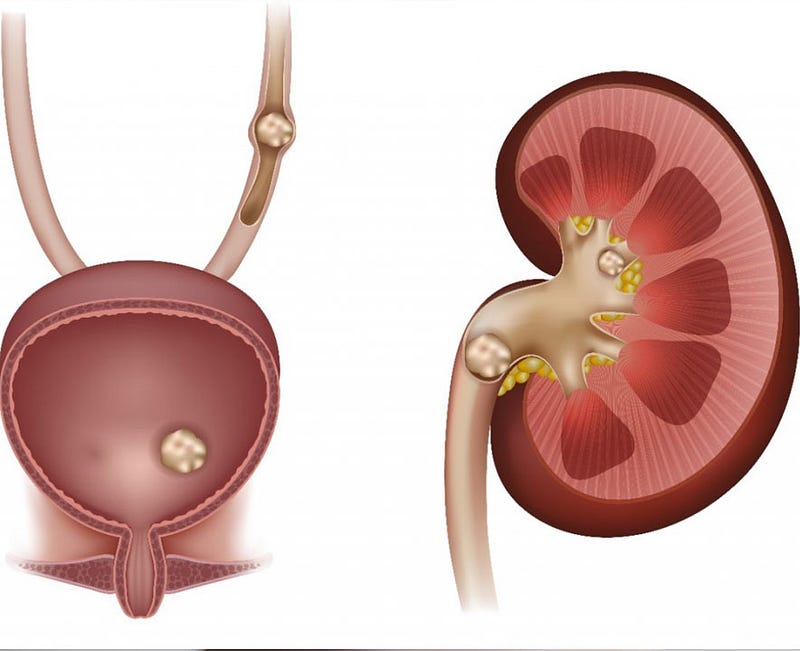Diagnosing kidney stones involves a systematic approach that combines medical history, physical examination, and various diagnostic tests.

Here’s a comprehensive look at how healthcare professionals identify and confirm the presence of kidney stones:
Medical History and Physical Examination
Symptoms Evaluation:
- Patients often present with severe pain in the abdomen, side, or back, which may radiate to the groin or lower abdomen.
- Other common symptoms include blood in urine (hematuria), nausea, vomiting, and pain during urination.
Risk Factors Assessment:
- Doctors inquire about risk factors such as family history of kidney stones, dehydration, dietary habits (high in protein, salt, or sugar), and certain medical conditions (e.g., gout, urinary tract infections).
Physical Examination:
- Healthcare providers may palpate the abdomen and back to locate areas of tenderness or pain that could indicate kidney stone presence or related complications.
Diagnostic Tests
Imaging Studies:
- CT Scan (Computed Tomography): This imaging modality is the gold standard for diagnosing kidney stones due to its high sensitivity and specificity. It can accurately visualize even small stones and their location within the urinary tract.
- Ultrasound: Particularly useful in pregnant women and younger patients, ultrasound can detect larger stones but may miss smaller ones or stones located in certain areas of the kidney.
Laboratory Tests:
- Urinalysis: Helps identify presence of blood in urine and assess for signs of infection or other abnormalities.
- Stone Analysis: If a stone is passed or removed, analysis of its composition can guide treatment and preventive measures.
Additional Diagnostic Measures
Intravenous Pyelogram (IVP):
- Involves injecting a contrast dye into a vein, which is then filtered by the kidneys and excreted in the urine. X-ray images are taken to identify any obstruction or abnormalities in the urinary tract.
Blood Tests:
- Serum Creatinine: Measures kidney function and helps evaluate potential complications such as obstruction caused by kidney stones.
Differential Diagnosis
- Other conditions such as appendicitis, diverticulitis, ovarian cysts, or testicular torsion can mimic symptoms of kidney stones. Thus, a thorough evaluation is essential to rule out other potential causes of abdominal or flank pain.
Conclusion
Diagnosing kidney stones involves a multi-faceted approach combining clinical evaluation, imaging studies, and laboratory tests. Timely and accurate diagnosis is crucial for initiating appropriate treatment to alleviate symptoms, prevent complications, and reduce the risk of recurrent stones. Collaborative efforts between healthcare providers and patients are essential in managing kidney stone disease effectively.
Comments
Post a Comment